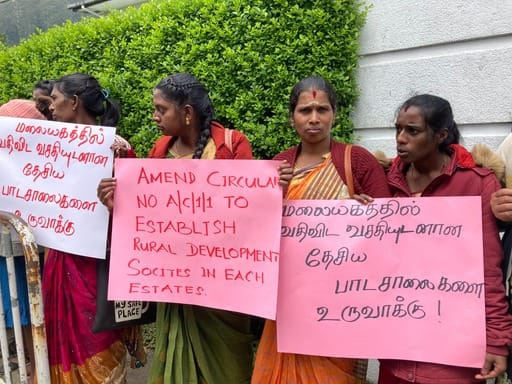
More than 2,500 plantation workers in Nuwara Eliya held a demonstration last Thursday, calling on Sri Lanka's presidential candidates to establish rural development societies, improve hill country schools, upgrade government estate hospitals and resolve ongoing labour issues.
The Kandy Community Development Organisation held this protest calling for equal rights of predominantly Tamil workers; descendants of indentured labourers brought over from South India by the British to work on plantations.
Despite the Sri Lankan government’s promises to increase the daily wages of plantation workers to Rs 1,700, they have yet to receive their promised salary with estate companies claiming that they will not pay. Palani Digambaram, the Nuwara-Eliya District MP, said that the government has instructed plantation companies not to raise wages and they are false promises intended to deceive voters.
The protesters demanded the Sri Lankan government also honour their pledges to establish rural development societies and upgrade government hospitals to provide adequate healthcare, relocating 37 schools from disaster-prone areas, and to provide government provisions in Tamil. The rural location means that the workers have no other choice but to rely on provisions provided by their employers, whose cost is deducted from their wages.
Education streams offered in small towns and these rural areas are extremely limited, thus significantly reducing the opportunities offered to children to access science, mathematics and foreign languages. There is also an acute shortage of teachers in the hill country, with promotion based simply on length of service. A publication presented at Peradeniya International Economics Research Symposium in 2023 on the Nuwara-Eliya district states that it has the highest rate of malnutrition of school children. It concluded that lack of access to food, proper healthcare and knowledge were key factors in contributing to the malnutrition of the predominantly Tamil-speaking students.
